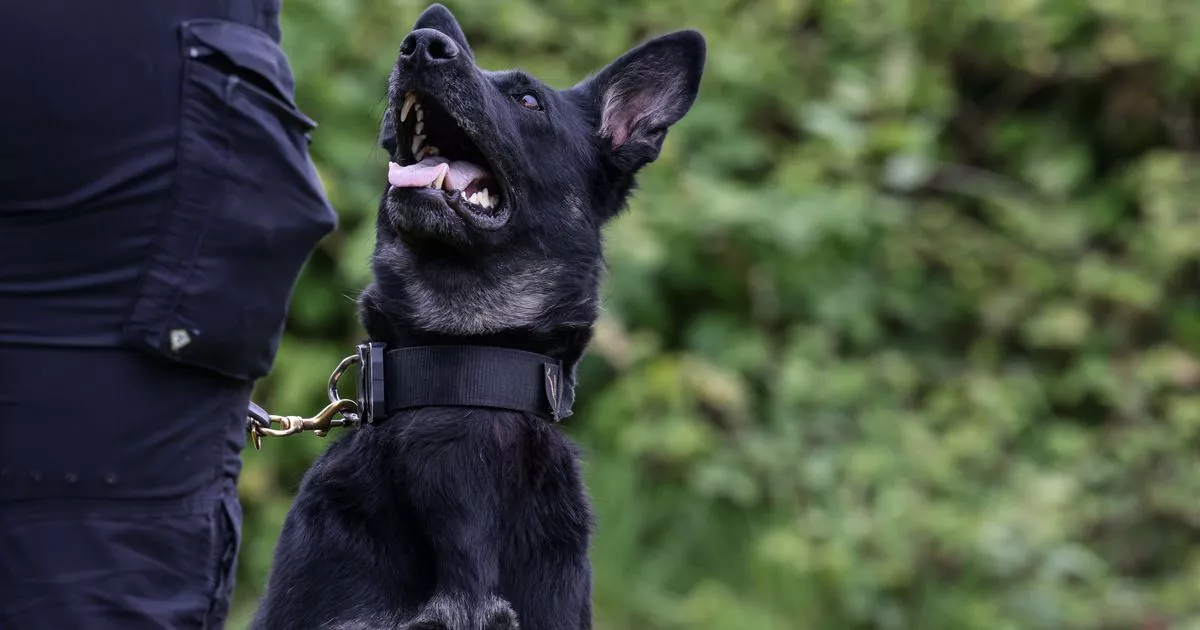The Manchester Evening News shadowed a police dog unit with Greater Manchester Police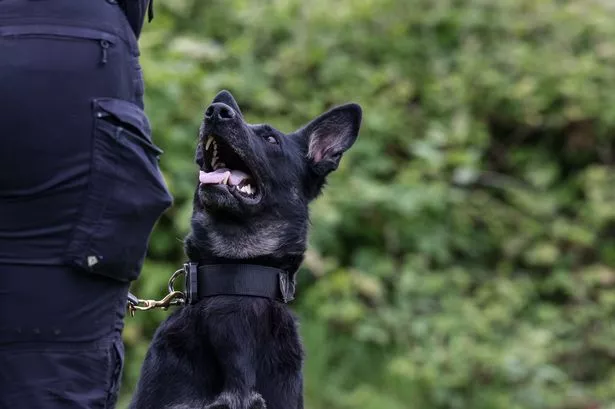 Police Dog Daisy(Image: Manchester Evening News)
Police Dog Daisy(Image: Manchester Evening News)
Many people may have been understandably charmed by the irresistible cuteness of police puppies at Piccadilly Station. But within a matter of months those adorable puppies can be trained to become a major asset to police work across Greater Manchester.
We meet Daisy a young and bouncy police dog, and Jax, a more subdued veteran who is close to retirement. Passing the car crates where they are kept Daisy barks at us loudly, while Jax sits quietly watching us.
Daisy and Jax are “general purpose” dogs who support other police units at a wide variety of scenarios, while more specialist dogs might work with firearms or bomb units.
“General purpose” includes tracking down suspects who have fled or hidden, or as a “deterrent” to persuade suspects to surrender to police, to put it politely.
Jax’s handler Inspector Michael Weeden reasons: “Criminals don’t argue with dogs. They will argue with police officers, but when a dog turns up they know they can’t reason with that.
“Just the presence of the dog alone is enough to do the job.”
Training
Dogs are selected as puppies, with some being bred from serving police dogs, including Jax, and others being bought by GMP. The oldest a dog is considered is generally around two years old.
Even once a dog is cleared for work with their handler the training continues.
Inspector Weeden heads out onto a patch of grass to make a “course” for Daisy to follow. Contrary to what you might expect, the dogs are not actually trained to look for the scent of people.
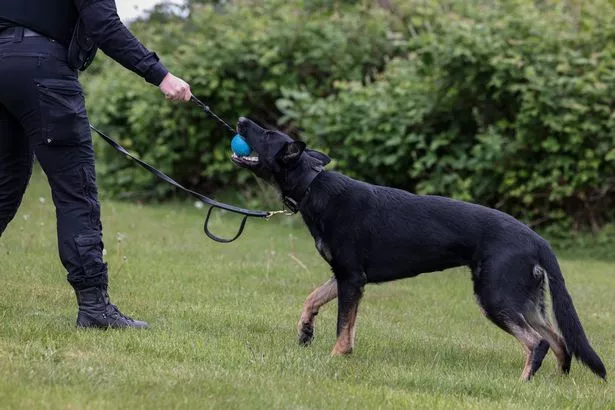 Police Dog Daisy(Image: Manchester Evening News)
Police Dog Daisy(Image: Manchester Evening News)
Instead, the officers explain, they are trained to look for smells which indicate that a patch of ground was recently disturbed. For example, grass which has been trodden on or even a bit of gravel which smells different to the rest of the gravel.
Daisy begins her search, leading her handler PC Hannah Williams back and forth as she sweeps for a part of the grass which smells different to the rest.
She zeroes in on that, and repeats the process.
It takes her less than two minutes to find the phone holder PC Williams dropped on the grass for her to find, and is rewarded with her ball.
As we watch Daisy play, a call comes in over the radio. We all bundle into the specially adapted cars and tear away on blue lights.
Out on call
Dog unit patrol cars have more modifications than just the kennel at the back, Inspector Weeden explains.
Speed is everything when a suspect is trying to escape, and to save time a button inside the car opens Jax’s kennel on the inside.
This would allow Jax to run through the car and leap out of the front window to pursue a suspect without wasting crucial seconds getting out and opening the boot.
We are advised to keep still if this happens while we are out.
At the call, Daisy is sent round the back of a property to stop a suspect from escaping through a window or back door.
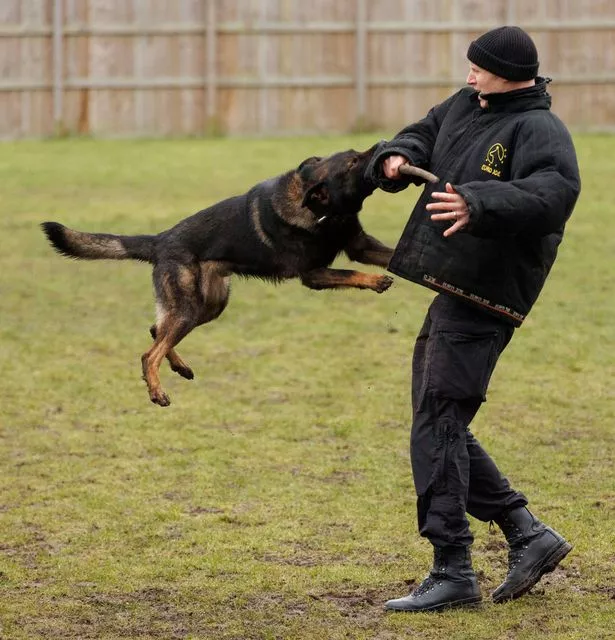 “General Purpose” dogs are used for a lot of different jobs
“General Purpose” dogs are used for a lot of different jobs
Watching her at work she looks no different from when she was hunting the phone holder just minutes earlier.
The majority of callouts for the dog unit come at night, where visibility is poorer for officers pursuing a suspect so the dogs’ keen sense of smell is a huge asset.
Speed is always important when police respond, but for the dog unit there is an extra factor in that they have to get there before the scent trail goes cold.
Weather plays a part in how long they have, with heat being the factor which cuts the time the most.
“Calls for the unit’s support come in at any time and frequently during the night, and we are always ready to react and respond immediately,” we are told.
The “bond”
The stress of what both police officers and police dogs encounter in the day to day means that there has to be a strong relationship between them, or it wouldn’t work.
This even includes matching the personalities of dogs and handlers.
“We will match the handler with the dog,” explained Inspector Weeden. “If we have an excitable bubbly dog we wouldn’t give that to a very excitable, bubbly person. We want that balance.
“A lot of work goes into pairing the right people with the right dog.
“We’ve got to know there’s a bond. They will bond with the dog for at least six weeks. Every day they will come into the kennels, groom them, and train them.”
It’s literally a 24 hour job as the dogs they work with go home with them every day. The dogs are not allowed into any building including their handler’s home and instead are given police issued kennels as their “safe space”.
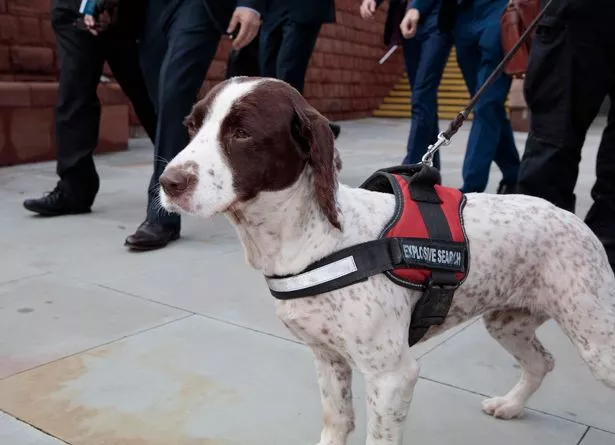 A sniffer dog deployed to “Operation Protector” at the Conservative Party conference in 2019
A sniffer dog deployed to “Operation Protector” at the Conservative Party conference in 2019
“That kennel is their house. We don’t invade their house and they don’t come into ours.”
The number of arrests with the dog unit has seen an increase of 37 percent since the dog unit was expanded this year. This included moving dogs and their handlers onto a 24 hour shift pattern.
This has been heavily focused on incidents such as alleged burglaries where someone may have fled the scene.
The dog unit has been responsible for arresting over a dozen burglary suspects over the last two months, seven people suspected of robbery and two for rape, as well as recovering 13 weapons.
Inspector Weeden says: “When people run away from the police we’ve got the best tool in the world to go and find them.”
It seems that with all the technology in the world, a dog’s nose is still unmatched.
